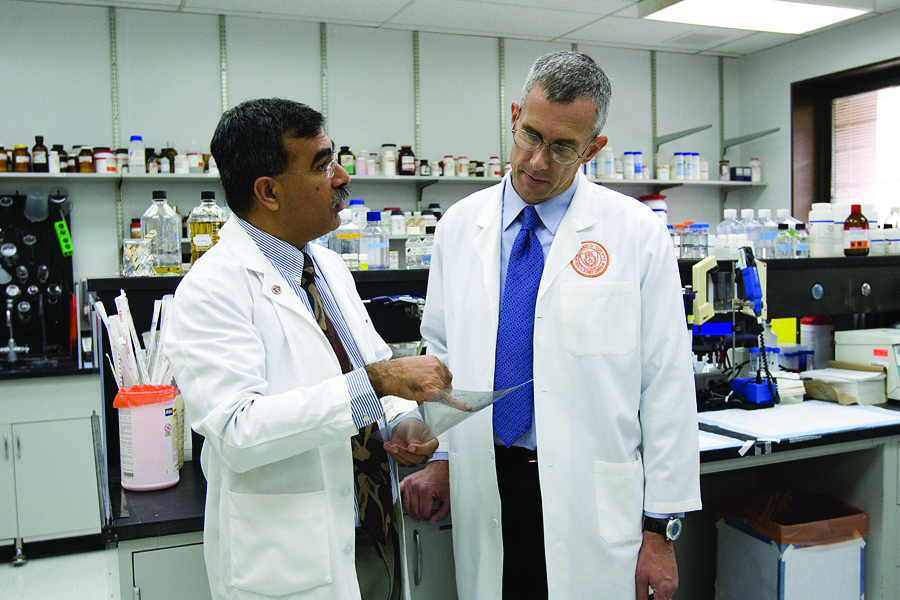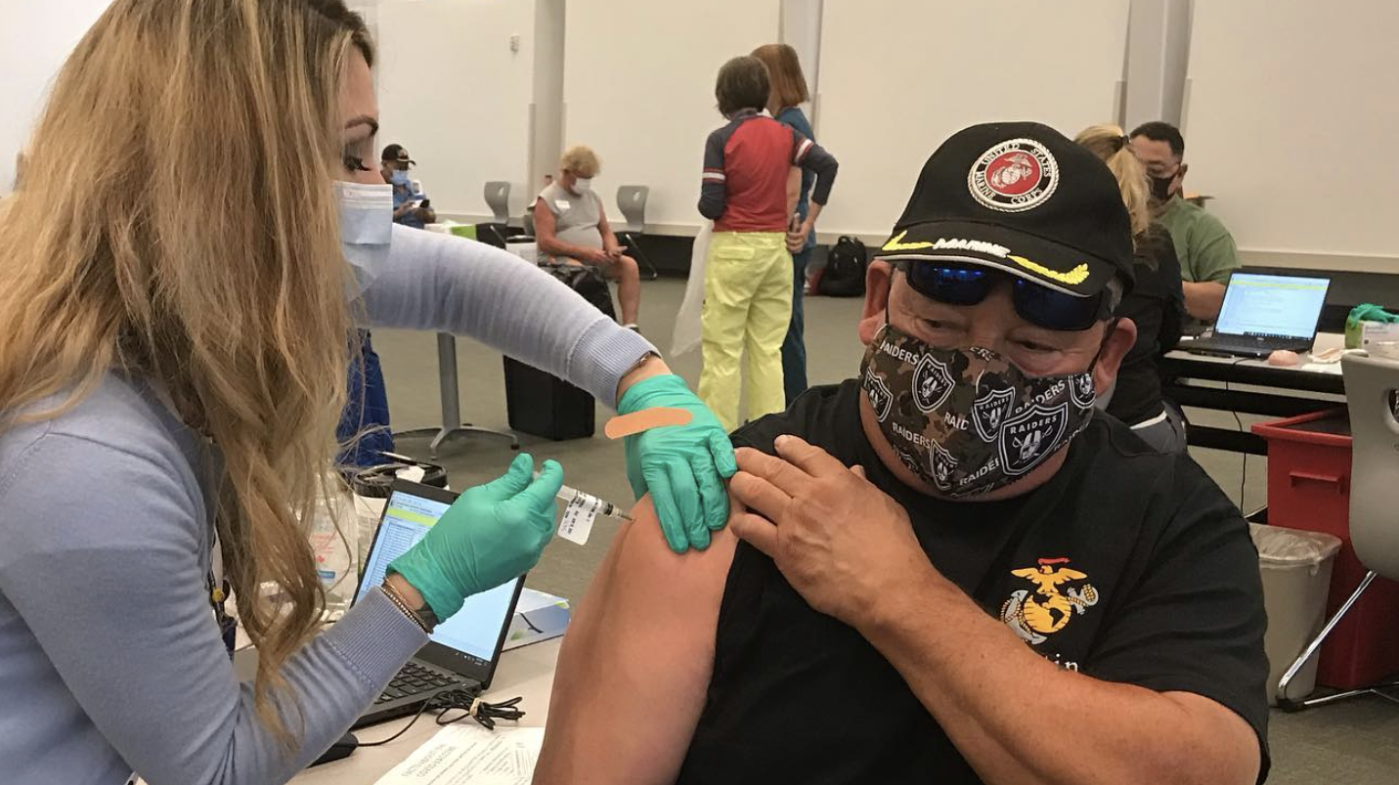A new agreement between VA and another federal agency will expand research on infectious diseases and related topics. The partnership is expected to benefit Veterans and all Americans, as well as people around the world.
VA signed a memorandum of agreement with the National Institute of Allergy and Infectious Diseases (NIAID) on June 28 to expand collaborative research.
NIAID is part of the National Institutes of Health. It is a world leader in research on infectious, immunologic and allergic diseases. Research funded by NIAID has led to many therapies, vaccines and diagnostic tests. The head of the agency, Dr. Anthony Fauci, has become well-known to Americans for his leadership in the public health response to COVID-19.
Dr. Victoria Davey, VA’s associate chief research and development officer for epidemiology and public health, says the hope is that the partnership will “improve VA’s ability to care for Veterans and improve the health and lives of Veterans and others throughout the U.S. and the world.”
Building on existing collaboration
VA and NIAID already collaborate on infectious diseases and immune system disorders. The agencies, as part of a broad international public-private partnership, work together on the Accelerating COVID-19 Therapeutic Interventions and Vaccines initiative. The research has been evaluating the safety and effectiveness of antibodies and antiviral medications targeting COVID-19, with Veterans being enrolled in trials at several VA medical centers.
Moreover, NIAID directly funds some 170 research projects at VA medical centers. These studies cover topics such as HIV, asthma, and drug-resistant “super bug” infections.
The new agreement will “continue and preserve” these efforts while promoting “greater synergy” by further leveraging the unique strengths of each agency. The formal agreement notes VA’s expertise in clinical trials, informatics and genomics, among other areas.
Leveraging momentum from the pandemic
Dr. Rachel Ramoni, who heads the VA research program, notes that the new partnership was given momentum in part by the pandemic.
“We began strengthening our partnership with NIAID in the early days of the COVID-19 pandemic, mainly around clinical trials, and now we are looking at many other areas in which we can join forces,” she says.
The agreement will make it easier for researchers with VA and NIAID to share lab specimens, data, methods and other resources. It will also involve new training opportunities such as workshops and seminars across the two agencies.
An initial set of joint projects expected to be launched through the agreement will focus on COVID-19. Some will test potential new treatments based on antibodies or antiviral drugs as part of ACTIV. Others will analyze data on VA patients to learn about viral mutations – such as the Delta variant now spreading across the U.S. and much of the world – and vaccine effectiveness.
Taking a broad look at factors impacting COVID illness severity
One project already underway between the two agencies is a study led by Dr. Sunil Ahuja at the South Texas Veterans Health Care System. His group is following patients hospitalized with COVID-19, as well as accessing data from routine screenings and monitoring of health care workers caring for COVID patients. Ahuja and colleagues are focusing on two measures they believe help explain why the virus affects people so differently, with some experiencing only mild illness and others getting very sick. One factor is an impaired immune system. The other involves inflammation and tissue damage in the airways. Ahuja’s team is also studying postmortem specimens and mice as part of their investigation.
Besides COVID-19, the VA-NIAID agreement will cover “a wide range of infectious, immunologic and allergic diseases of common concern.” Davey says the partnership should lead to better care across all of these conditions. In particular, she foresees more impact from VA research in this area.
“The VA research enterprise is strengthened as a result of this agreement,” says Davey, “and our impact in infectious diseases research should be greater.”
More Information
Click here to learn more about VA research.
Topics in this story
More Stories
Respiratory illness season is approaching. Vaccines can help protect from flu, RSV (Respiratory Syncytial Virus), COVID-19, and pneumococcal pneumonia. These vaccines are available free of charge to Veterans receiving care at VA.
In a new series that highlights advancements in VA health care, VA researchers and clinicians are appearing on a Veteran-themed media platform—Wreaths Across America Radio—to tout their critical work.
Recently published findings from the VA Disrupted Care National Project [...]







This is great to join forces to eliminate the pandemic.